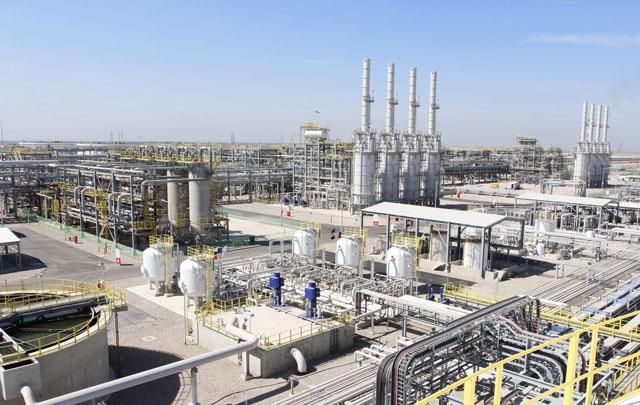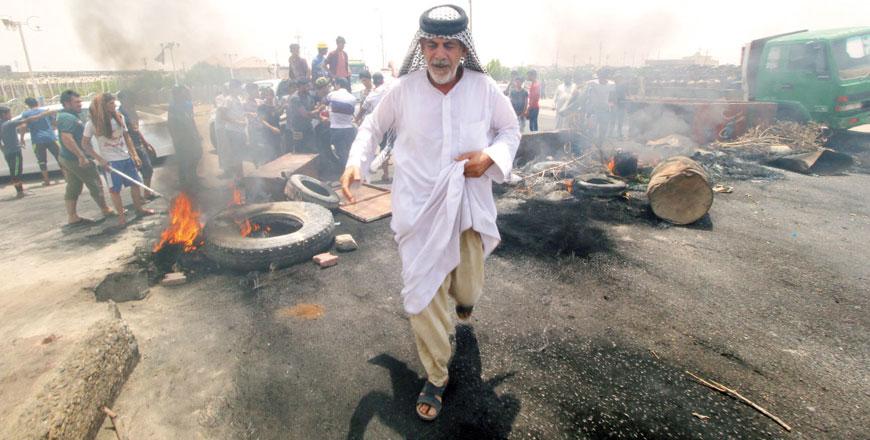You are here
Lukoil starts output from massive Iraq oilfield
Mar 29,2014 - Last updated at Mar 29,2014

BASRA, Iraq — One of the biggest undeveloped oilfields in the world has begun commercial production in south Iraq, officials said Saturday, part of ambitious plans by Baghdad to dramatically ramp up output.
The announcement was made during a ceremony attended by Oil Minister Abdul Karim Al Luaybi and Deputy Prime Minister Hussein Al Shahristani, as well as officials from Russian energy giant Lukoil, the principal firm developing the enormous West Qurna-2 field.
It comes just weeks ahead of parliamentary elections, with the country looking to fund reconstruction of its dilapidated infrastructure and economy by upping crude sales.
"Production started today," said Nasir Hashim Fakhr, the Iraqi oil ministry official charged with the development of West Qurna-2 field in the southern Basra province.
Fakhr told reporters initial production was about 120,000 barrels per day (bpd), but that output would rise to 420,000 bpd by the end of the year.
Lukoil President Vagit Alekperov said in a statement that the target was initially hit on Friday at West Qurna-2, one of the world's biggest undeveloped oil fields with known reserves of 12.9 billion barrels.
The Russian firm had initially partnered with Norway's Statoil on the West Qurna-2 field, signing a 20-year deal in early 2010 under which they were to increase production at the field to 1.8 million bpd, with fees of $1.15 per barrel extracted.
In May 2012, however, the Norwegian company sold its stake to Lukoil, and the production target was later lowered to 1.2 million bpd.
Iraq has proven reserves of 143.1 billion barrels of oil and 3.2 trillion cubic metres of gas — both among the highest such deposits in the world.
Baghdad is heavily dependent on oil exports for government revenue, and the authorities are seeking to dramatically ramp up sales.
The country is looking to increase its production capacity to 9 million bpd by 2017, a target the International Monetary Fund and International Energy Agency have warned is too ambitious.
It currently produces about 3.5 million bpd, with exports in February reaching 2.8 million bpd, the highest such figure in at least a quarter century.
Related Articles
Oil output in Iraq's Kirkuk has slumped to 30,000 barrels a day since June, 90 per cent down on earlier this year, and a federal pipeline to the Turkish port of Ceyhan may be out of action for over a year due to sabotage, Kirkuk's governor said on Friday.
Iraq’s oil exports and revenues declined in 2013 compared to the previous year, official figures showed Wednesday, despite efforts to dramatically ramp up crude sales to fund much-needed reconstruction.
BASRA, Iraq — Iraqi police fired into the air to disperse protesters demanding jobs and better public services at one of three demonstration

















